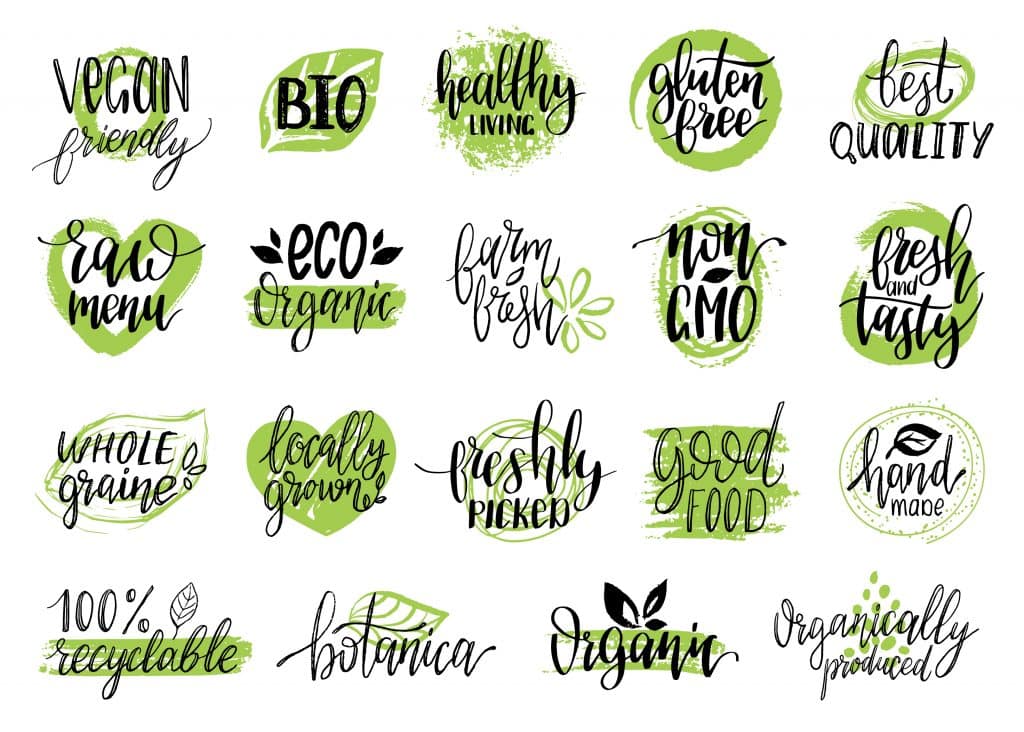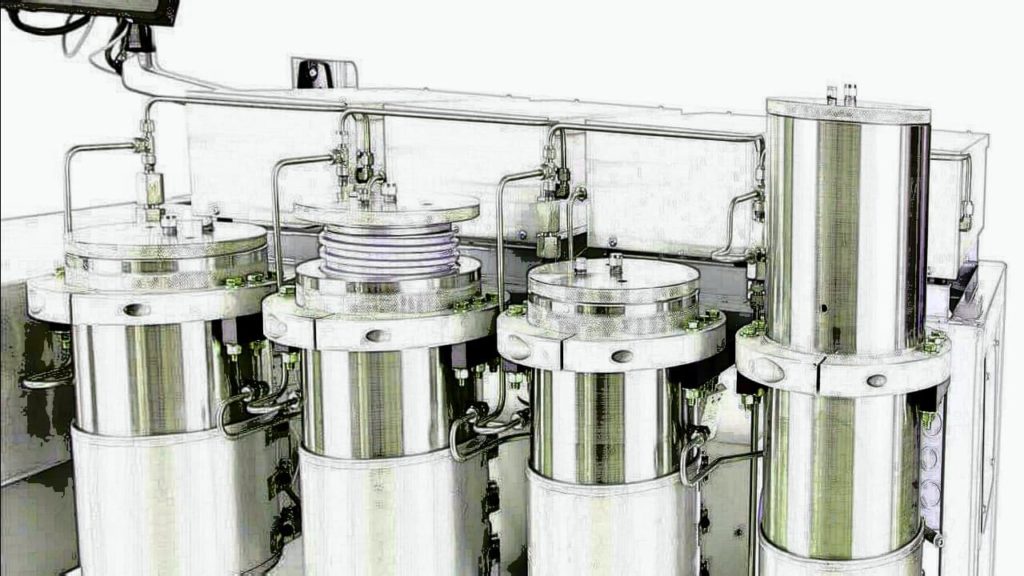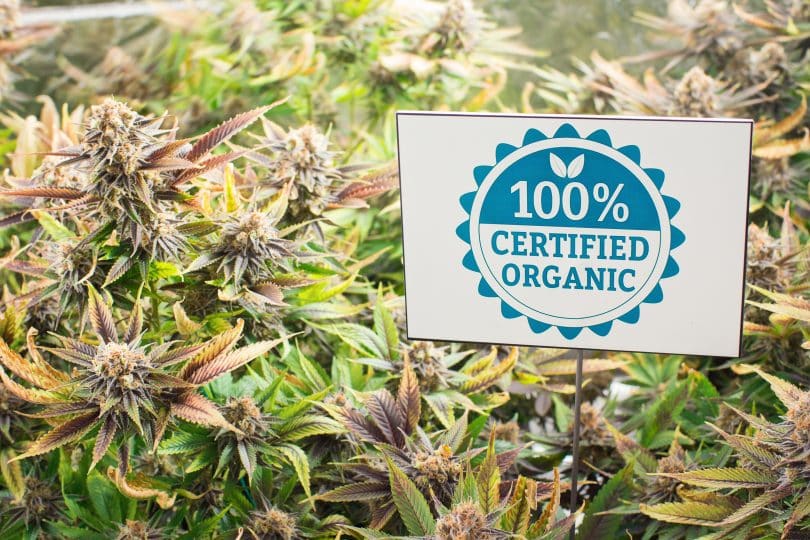Nutritional terms are something we see every day, so much that they’ve almost begun blending into the background with everything else on the label. Organic, non-GMO, vegan, all-natural, raw, superfood, sustainable, and so on, are words you’ll commonly see on a large percentage of labels for consumable products. We tend to think only about food in relation to these terms, but they’re prevalent in the cannabis industry as well. For example, organic weed products can sell for two or three times more than conventional items, but the process of creating organic, non-GMO, vegan weed products is complicated and costly.
To stay current on everything important happening in the industry, subscribe to the THC Weekly Newsletter. Also, it’ll get you premium access to deals on cannabis flowers, vapes, edibles, and much more! We’ve also got standout offers on cannabinoids, like HHC-O, Delta 8, Delta 9 THC, Delta-10 THC, THCO, THCV, THCP & HHC, which won’t kill your bank account. Head over to our “Best-of” lists to get these deals, and remember to enjoy responsibly!
Common nutritional terms and their meanings
Let’s start with a few basic terms you may hear when discussing food and other comparable products, starting with organic. The original “organic ideal” was to eat only local, seasonal, sustainable produce, but all these terms have different meanings (although a lot of overlap exists) and sometimes it can be a challenge to incorporate these varied components into the final product. The term organic refers to the production of consumable goods without using fertilizers, pesticides, or other artificial agents. Any exceptions are listed in the National List of Allowed and Prohibited Substances.
Local refers to foods grown within a certain radius, that are also consumed relatively close to the site of production. The exact range varies from a few miles to about one hundred, depending on the product and local regulations. Seasonal means the food was grown “in season” and eaten when ripe, and not imported. Sustainable, in the broadest sense, refers to how well something maintains itself over a longer period of time. In food, it means the produce was grown in a way that does not deplete the earth around it of natural resources.
Then we have non-GMO, which can get a bit complicated in terms of application. “GMO” stands for Genetically Modified Organism, and is an umbrella term used to describe any plant, animal, or other organism whose genetic material has been alerted in some unnatural way. Non-GMO implies the final product does not have any ingredients that were modified in a laboratory, but roughly 70% of products on supermarket shelves are, in fact, GMO.

Vegan is self-explanatory but for the sake of being thorough, vegan items are made without using any type of animal byproducts or animal testing. The cutoff on what exactly is vegan and what isn’t remains up for debate among some groups. For example, some vegans still consume honey while many do not. Same with eggs. Some have certain parameters for when they’ll consume such products. In another example, I have chickens at home: 8 hens, no roosters. So, all the eggs produced by my hens are unfertilized, not viable, and would go to waste if not consumed by someone.
Similarly, raw food is completely unprocessed, like non-GMOs, and “natural” has been deemed by the FDA to mean that “nothing artificial or synthetic (including all color additives regardless of source) has been included in, or has been added to, a food that would not normally be expected to be in that food.” So gummies colored with beet juice or something like that, would still NOT fall into the natural category as the juice color was added to it and not naturally occuring.
Organic, Non-GMO, vegan cannabis products?
An upcoming movement within the cannabis industry, #whatsinmyweed focuses on the connection between shopping for cannabis vs shopping for food items. In both, the cannabis and food industries, consumers are spending 60% to 109% more on organic, non-GMO, raw, natural, (healthy) options. It makes sense to see this crossover considering both cannabis and food are consumable products, and if we’re promoting cannabis as a substance for wellness, it’s illogical for it to be loaded with pesticides, heavy metals, mold, and other contaminants that are detrimental to human health.
Longtime cannabis industry operators can vouch for this, stating that craft organic options are selling for way more, and at a much higher rate, than bottom shelf strains. This can be seen in the B2B sector as well, with cultivators struggling to sell bottom and mid-shelf flower. The price for that quality, in some markets, has dropped to as low as $100-$200 per pound, and that’s IF a buyer is even found.
“The organic side is really coming into its own,” said Liz Geisleman, CEO of 710 Spirits, a Denver company that sells organic and conventional solvents to extractors nationwide. “Organic cannabis is coming fast and furious.”
And it’s not just artisan buds that are fetching those higher prices. Edibles, topicals, and many other product types are exploring healthier alternatives as well. These days, you’re more like to be able to find gummies that are flavored with natural fruit juices rather than artificial flavorings, or sweetened with real cane sugar as opposed to corn syrup. Obviously a gummy, is a snack and not something we can consider a health food, but eliminating bad ingredients, even if it’s only little by little, does still make a difference in the long run.
“Being organic, it’s a bit of a slower approach,” said David Bernard, vice president for growing operations for The Green Organic Dutchman in Mississauga, Ontario. “But once the systems are in place, you have a really healthy method of producing cannabis, and as the years go by, the margins increase.”
Production standards
When it comes to creating organic cannabis products, naturally, it all starts with the way the plant is grown. But with no true production standards in place, and very little in the way of organic certifications, what exactly constitutes “organic cannabis”? It’s important to note that just because cannabis products can’t get a USDA organic-certified label, business owners can still choose to abide by those standards in their cultivation and production practices. The problem at that point, is trusting whether the companies advertising “organic” products are self-regulating and actually committing to those standards.
Luckily, there are some exceptions for this lack of oversight. Organic recognition for marijuana (more than 0.3% THC) from the USDA is obviously not going to happen until it is federally legal, but hemp (less than 0.3% THC) is legal as per the 2018 farm bill, and actually can sport the organic label. Additionally, at the state level, we are seeing more of a push for organic standards in cannabis production, as demand continues to grow, and local governments try to thwart the still-thriving black markets with whatever means they have at their disposal.
Take California, for instance, where the state’s Department of Food and Agriculture (CDFA) recently released information for the new OCal Program, which is meant to establish regulatory framework to create “comparable-to-organic” standards in the cannabis industry. In Maine, the Organic Farmer & Gardener Association has launched a Certified Clean Cannabis Program (MC3) that would offer third-party verification for cannabis companies who claim their products are organic. Georgia (medical), Washington, and Massachusetts are working to implement their own standards and regulations as well.
Organic extractions
The next step in the creation of organic cannabis products, beyond flower, is extraction and processing. Certain extraction methods, careless manufacturing, or even using the wrong cleaning agents can ruin a product and strip it of its organic label.

Choosing an extraction method is key, and hydrocarbons like butane are out of the question. So that leaves: CO2, organic ethanol, or solventless (such as cold-press extraction); all of which have their ups and downs. If we take solventless extraction, those methods are intrinsically organic, but they’re slow and it’s difficult to scale what your final yield will be.
Organic ethanol is another option, but not a very cost-effective one. Organic ethanol can cost anywhere from two to ten times as much conventional ethanol, so that’s not an option for many companies. “It’s not really cost effective at this point to use organic ethanol,” said Smoke Wallin of Vertical Cos., a multistate marijuana operator in Agoura Hills, California, and CEO of its hemp-derived CBD spinoff, Vertical Wellness. “The market is there,” he said. “The future play for processing is going to be significant growth on the organic side.”
Wallin’s company, and many others, are opting for CO2 extraction simply because it’s the most affordable option that still falls under the umbrella of organic. During CO2 extractions, pressurized carbon dioxide is used to draw out naturally occurring phytocannabinoids and terpenes from raw cannabis flower.
Final thoughts
The way it’s looking now, the future of cannabis is in the high-end, artisan-style, organic, non-GMO, natural products. This pattern has already been observed in the food industry. Since the USDA began requiring companies to print nutrition facts on their products, consumers became increasingly conscientious of what they were putting in their bodies; and it’s not surprising to see this mindset spill over into other industries, like cannabis.
Welcome to the site! Thanks for making it to CBDtesters.co, the top internet spot offering up fully-rounded independent news covering the growing cannabis and psychedelics industries. Stop by frequently to stay up-to-date on these dynamic industries, and make sure to sign up to The THC Weekly Newsletter, to ensure you’re never late on getting the news.










